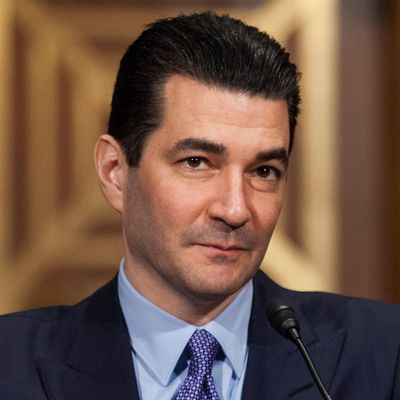
Well, shoot.
The FDA commissioner Scott Gottlieb announced his unexpected resignation on Tuesday, in a letter the FDA tweeted. The reasons are unclear, but it leaves a lot of people extremely disappointed, myself among them. (He’s been commuting to D.C. from Connecticut and says he misses his wife and young family.)
Since his appointment in May of 2017, Gottlieb has earned wide bipartisan support as a public-health advocate (also unexpected, given his previous ties to the pharmaceutical industry), due in large part to his efforts to curb the opioid epidemic, which he told CNN last year was the “biggest crisis” facing the FDA. “Gottlieb has been shockingly good so far,” Stanford public policy expert Keith Humphreys told Vox. (However, Harvard professor and FDA-scrutinizer Daniel Carpenter said the “jury is still out” on Gottlieb’s legacy, in an interview with STAT.)
In his 22-month tenure, Gottlieb worked to prevent minors from vaping and getting hooked on e-cigarettes (I was moved by his personal and vehement public statement from last November — he mentioned his own history with cancer, as well as his experiences as a doctor and a father). He also sought to make generic drugs more accessible and regulate the ballooning dietary supplement industry (specifically the shady companies marketing products to patients with Alzheimer’s). And he has a charming and heartfelt Twitter feed, he blogs, he cares about dogs, he’s awkward and lovable in nutrition videos. Also, we used to date. Just kidding.
Personally, Gottlieb won me over with his #SundayTweetorials, in particular the one where he explained the FDA’s new efforts to regulate supplements. It was understandable and fun — with cartoons and pictures — and I shared it in Slack with my colleagues. “I feel kind of dumb that it’s so useful,” I said, “but it is.” The fact that he seemed to be doing it in his own free time, on the weekend, in an attempt to reach more people who might not want to read long FDA statements, was affecting.
If you saw and were alarmed by the medical-device horror movie The Bleeding Edge (available on Netflix, recommended), he was making headway on that front, too.
Good-bye, Scott. Don’t be a stranger.

